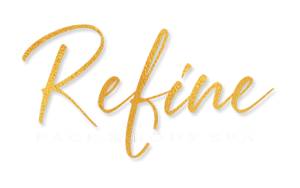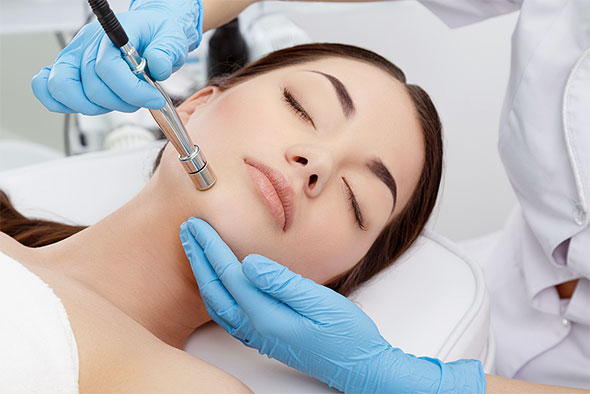In today’s fast-paced world, it’s easy to get caught up in the hustle and bustle of daily life, often neglecting our own well-being in the process. As we juggle work, family, and countless responsibilities, the concept of self-care becomes increasingly crucial. One of the most effective and scientifically supported ways to practice self-care is through regular spa visits. In this article, we’ll explore the science behind self-care and why scheduling time at the spa should be an integral part of your wellness routine.
The Importance of Self-Care
Before delving into the science of spa visits, let’s understand the significance of self-care:
1. Stress Reduction: Stress is a common and often unavoidable aspect of modern life. Chronic stress can lead to a range of health problems, including anxiety, depression, and cardiovascular issues. Engaging in self-care activities, such as spa visits, can help reduce stress levels.
2. Mental Health: Self-care is essential for maintaining good mental health. It allows you to recharge, relax, and reset your mind. Regular self-care practices can improve mood, increase self-esteem, and enhance overall emotional well-being.
3. Physical Health: Self-care is not limited to mental and emotional well-being. It also plays a crucial role in physical health. Activities like spa treatments can improve circulation, reduce muscle tension, and enhance overall physical relaxation.
4. Enhanced Productivity: Taking time for self-care can lead to increased productivity and improved cognitive functioning. When you prioritize self-care, you’re more likely to perform better in other areas of your life.
The Science Behind Self-Care
The science behind self-care is rooted in the mind-body connection. When you engage in self-care activities like spa visits, you’re not only nurturing your body but also positively affecting your mental and emotional state. Here’s how it works:
1. Stress Reduction and the Relaxation Response
When you experience stress, your body goes into “fight or flight” mode, releasing stress hormones like cortisol. Chronic stress can lead to a constant state of tension, which can have adverse effects on your health. Self-care activities like spa visits trigger the body’s relaxation response.
The Relaxation Response: The relaxation response is the opposite of the stress response. It’s a state of deep relaxation in which your heart rate, blood pressure, and muscle tension decrease. When you engage in spa treatments like massages or facials, your body enters this state, promoting relaxation and reducing stress.
2. Improved Mental Health
Self-care practices like spa visits can have a profound impact on mental health:
Release of Endorphins: Spa treatments, particularly massages, trigger the release of endorphins—the body’s natural “feel-good” chemicals. Endorphins promote a sense of well-being and can alleviate symptoms of depression and anxiety.
Enhanced Sleep: Adequate sleep is crucial for mental health. Spa visits can improve sleep quality by reducing stress and promoting relaxation.
Mindfulness and Mind-Body Connection: Many spa treatments encourage mindfulness and the connection between the mind and body. This can improve self-awareness, reduce rumination, and enhance overall mental well-being.
3. Physical Health Benefits
Self-care is not limited to mental and emotional well-being. Regular spa visits can also yield significant physical health benefits:
Improved Circulation: Massages and hydrotherapy treatments can enhance blood circulation, delivering oxygen and nutrients to cells while removing waste products. Improved circulation can boost overall health.
Muscle Tension Relief: Spa treatments can target and alleviate muscle tension. This can be especially beneficial for individuals with chronic pain conditions.
Skin Health: Facials and skincare treatments improve skin health, promoting a youthful and vibrant appearance. Healthy skin also plays a role in self-confidence and self-esteem.
4. Increased Immunity
Stress weakens the immune system, making you more susceptible to illness. By reducing stress through self-care practices like spa visits, you can strengthen your immune system and better protect yourself from infections and diseases.
The Role of Spa Visits in Self-Care
Now that we understand the science of self-care, let’s explore why spa visits are an essential component:
1. Professional Expertise
Spas are staffed by licensed professionals who are trained to provide a range of treatments tailored to your specific needs. Whether it’s a massage, facial, or body treatment, spa therapists have the expertise to deliver effective, safe, and relaxing experiences.
2. Stress Reduction
One of the primary reasons people visit spas is to reduce stress. Spa environments are designed to be tranquil and peaceful, providing a break from the stresses of daily life. The combination of soothing ambiance, skilled therapists, and stress-reducing treatments can lead to a profound relaxation response.
3. Holistic Approach
Spas often take a holistic approach to well-being. They consider both the physical and mental aspects of health. Spa treatments focus on relaxation, rejuvenation, and self-awareness, promoting

